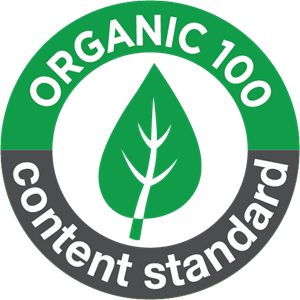Posted on 10th March 2022
by Jacqui Vear

We have a shared responsibility to adjust our habits and lifestyles as part of the world’s response to the climate emergency.
Ethical clothing or sustainable workwear are amongst terms that have a subjective meaning. Our sustainable corporate gifts range includes branded workwear, which often comes with accreditations that might be new to you. Certification gives transparency and is a key part of buyer confidence when it comes to green supply chains.
Here’s an overview of the terms you need to know for your sustainable clothing projects.
GRS – The Global Recycled Standard is an international standard that sets requirements for recycled input. GRS certification also confirms that production processes meet social and environmental best practices, as well as complying with chemical restrictions.
If you are looking for garments that have the least impact on human health and the planet, look out for the GRS logo. More information can be found here.

GOTS – The Global Organic Textile Standard is used worldwide to confirm that fibres are organic, as part of a supply chain that is ecologically and socially responsible. For more detailed information, click here.

OCS – The Organic Content Standard, looks at organic input and the associated chain of custody, like GOTS. It is the certification of organic content, from the farm to the final product, a process that is independently audited. Further details can be found here.

Standard 100 by OEKO-TEX® – This standard is used worldwide and confirms that every element of a textile or leather article has been tested for harmful substances, making the resultant product harmless to human health. The standard goes beyond many legal requirements, also considering non-regulated substances, in a list of criteria that is updated at least annually. The standard is attributed to a whole garment, considering every component from fibres, to linings, zips, buttons and applied prints or coatings. There are four product classes, the strictest requirements linked to class 1, including products for babies, through to class 4, including products such as curtains and upholstery fabric. If you would like to read more about this standard, click here.

rPET – Recycled Polyethylene Terephthalate, is the recycled version of PET, which originates from oil and petrochemicals. It is sometimes called ‘post-consumer’ PET. As such the rPET uses no new natural resources, plastic is collected, cleaned and reused to make new products, through a process that uses up to 50% less energy used than making new PET. Both PET and rPET materials can be recycled through the correct streams. So remember, not all plastic is not the same!
Polylana® Fibre – This is a low-impact, wool-like material that can be knitted into a wide range of products. Traceability is guaranteed and production processes are efficient with energy, water and Co². Polylana® blended fabrics are also available. Visit the website for this brand by clicking here.

If you’re proactively exploring product switches and innovations that will support the sustainability of your workwear purchases, well done! We continue to be ready and willing to help you on that journey. Let us know how we can assist. Here’s how to get in touch.
